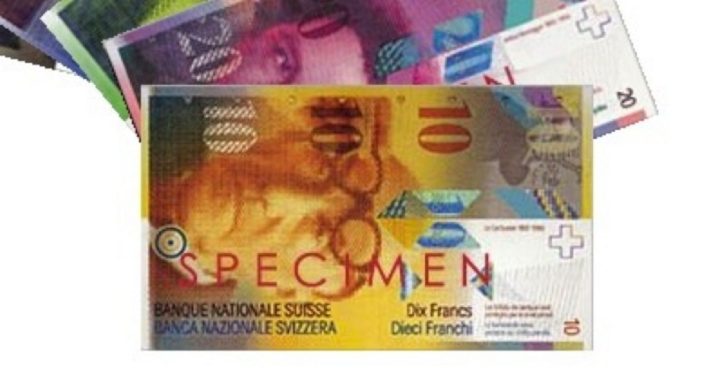
The Swiss voted down the initiative “Save Our Swiss Gold” on Sunday, November 30, by a margin of three to one, rejecting efforts to shore up the Swiss National Bank’s (SNB) balance sheet. Switzerland, a direct democracy, entertains an average of five such referendums every year, and most of them fail. This initiative would have required the SNB to boost its gold bullion holdings from its current eight percent level to 20 percent over the next five years. It would also have required the central bank to repatriate its foreign-held gold reserves, while prohibiting it from ever selling any of those reserves in the future.
When first proposed, speculators bought the Swiss franc cheap, hoping to sell it dear if the initiative passed. Investors in gold were holding their breaths as well, noting that the initiative could have a positive effect on its price as the SNB entered the market to respond to the new rules. Instead, both gold and the Swiss franc dropped on the news.
Back in October Ron Paul noted that the initiative stemmed from unhappiness with SNB policies going back to September 2011, when bank officials declared that it would tie the Swiss franc to the euro. Using as an excuse that a strong franc would hurt exporters, the bank issued promises to “defend” the franc at all costs, declaring that it would buy unlimited amounts of euros if necessary to maintain the link.
Paul tied the sentiment to similar movements in the United States, Germany, and the Netherlands to gain more oversight over and accountability to central banks in general. Wrote Paul:
The Swiss referendum is driven by an undercurrent of dissatisfaction with the conduct not only of Swiss monetary policy but also of Swiss banking policy.
Paul explained that many in Switzerland and elsewhere are tired of being bullied by the United States in its quest to extract tax revenues from those seeking safe havens — “tax havens” — for their money. Paul noted:
Remember that “tax haven” is just a term for a country that allows people to keep more of their own money than the US or the EU does, and doesn’t attempt to plunder either its citizens or its foreign account holders.
But the past several years have seen a concerted attempt by the US and the EU to crack down on these smaller countries, using their enormous financial clout to compel them to hand over account details so that they can extract more tax revenue.
Swiss “tax haven” status has evaporated in the face of those pressures, and the central bank has been only too willing to go along to get along. In September 2011, the bank announced that it would peg the Swiss franc to the euro at 1.2 Swiss francs to one euro. As the European Central Bank (ECB) has pulled every Keynesian rabbit out of its hat in its failing attempt to stimulate the European economies, it has successfully and predictably exported inflation to Switzerland, which is now experiencing a nascent and growing real estate bubble.
Paul hoped that the November 30 referendum would provide a “bellwether” on just how effective the educational process has been in supporting the reining in of central banks:
The results of the November referendum may be a bellwether, indicating just how strong popular movements can be in establishing central bank accountability and returning gold to a monetary role.
With just one out of four voters expressing distrust with the present system, the bankers are relaxing. Wrote Janwillem Acket, the chief economist at Julius Baer, the Swiss private banking group: “The key word is relief.… The SNB [now] has more options and fewer constraints on monetary policy.”
Some are taking the vote as confirmation of the central bank’s meddling. Wrote Beat Siegenthaler, a currency specialist at UBS: “The result may be interpreted as a vote of confidence for the SNB and thereby strengthen [its] credibility.” Martin Gueth, an economist for the German financial services giant LBBW, added:
The SNB can feel confirmed in its policy. By rejecting the gold measure, voters have come out in favor of its current stance.
Switzerland’s Finance Minister Eveline Widmer-Schlumpf also breathed more easily:
The central bank is [now] free to pursue its policy of a minimum exchange rate….
Gold doesn’t have the same meaning as it had 50 or 60 years ago.
Now that the SNB is free from any concern that it would have to tie up billions of francs holding more gold, it is in a strong position to support its policy cap by buying euros as necessary. The end result is predictable, according to Austrian school economic thinking. With now unlimited permission to expand its currency, the Swiss Central Bank will print money with abandon, and in the process will decimate the franc’s purchasing power, to keep it on par with the euro.
With the price of gold at lows not seen in years, the buying opportunity just became better for holders of gold.
The Swiss referendum indicates just how much work still needs to be done to educate the electorate, not only in Switzerland but in every other country with a central bank, about the dangers of debauching the currency and the predictable end result.
A graduate of an Ivy League school and a former investment advisor, Bob is a regular contributor to The New American magazine and blogs frequently at www.LightFromTheRight.com, primarily on economics and politics.



